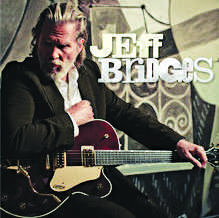Jeff Bridges’ new album, “Sleeping Tapes,” was designed with the sole intention of soothing you to sleep while raising money and awareness for No Kid Hungry, with all proceeds going to the organization.
This, though, is an “album” in only the loosest sense of the word. What we’ve got here is a humorous, meandering ramble through the far-out mind of the Academy Award-winning actor and life-long musical dabbler.
Bridges has released records before – a handful of country-folk collections with his band the Abiders, as well as his role as country has-been Otis “Bad” Blake in the movie “Crazy Heart” – but nothing like this. “Sleeping Tapes” is a stretched-out aural narrative. The primary instruments are Bridges’ gravelly grumble and an array of ambient synthesizer pulses and whooshes.
“Introduction (Good Evening)” opens with a warm, glowing tone, resonating like a Himalayan singing bowl, and is lazily followed several seconds later by the sound of Bridges sliding out from under the covers and padding his feet down onto the floor.
“These are the sleeping tapes. I hope they inspire you to do some cool sleeping,” he half-mumbles toward the end of a monologue punctuated by thoughtful pauses and comfortable chuckles.
Throughout the entire album, Bridges’ speech is meandering and familiar, giving the recording a genuine immediacy. Such a bizarre project runs the risk of becoming a self-indulgent ego trip, but Bridges’ amiable tone and mellowed-out tangents ensure that the whole thing never reads as anything other than the idiosyncratic explorations of an enthused tinkerer.
On “Sleep. Dream. Wakeup,” he repeats the titular triad until it becomes a mantra, his multi-tracked intonation splitting and layering into a sort of blissed-out Gregorian chant.
“Hummmmmm” is exactly as advertised: Bridges introduces you to his method for calming down on set. “My makeup man … gets a kick out of this,” he says before launching into two minutes of murmured arpeggios. The very next segment, “Goodmorning, Sweetheart,” documents Bridges’ attempts to convince his wife Susan to hum for the tape as the two make breakfast together. You can hear forks clink and the coffee maker burble, while gentle synthesizer whooshes pour into the spaces in between.
Later, Bridges offers you a glass of water, then shares the following: “If you’re like me, you drink a glass of water before you got to bed, you’re getting up a couple times during the night. But that’s okay.”
Bridges recruited the talents of composer Keefus Ciancia (“The Hunger Games” soundtrack and Elton John and Leon Russell’s “The Union”) and mastering engineer Doug Sax (Pink Floyd’s “The Wall,” the Rolling Stones’ “Sticky Fingers,” among many others), and the two have created a beautiful, eerie soundscape of subtle texture and exotic ephemera.
Thunderclaps and gentle rain conclude “The Raven.” In “Ikea,” as Bridges relates his plans to have his remains installed in an Earth-orbiting satellite following his death, the actor’s voice splits ever-so-slightly into two: Human Jeff and Cyborg Jeff diverge just enough to generate a sci-fi inspired tension reminiscent of the microscopic delay David Bowie employed to make the chorus of 1980’s “Ashes to Ashes” so subtly disconcerting.
Perhaps the most successful and intriguing synthesis of Ciancia and Sax’s foley artistry and Bridges’ meandering genius is the 11-minute “Temescal Canyon,” in which you take a Bridges-narrated trek through the titular California valley, stopping to check out a dog sitting on an office chair, waving to a guy named Neil and stumbling upon some Spanish doubloons in a stream. Grass crunches beneath your feet, the creek burbles happily and a train bellows in the distance.
What’s it all about? Who knows? But even if you try it out and can’t quite get into it, it’s refreshing to see someone trying stuff out purely for the sake of wanting to try it out. It is available online at dreamingwithjeff.com.









